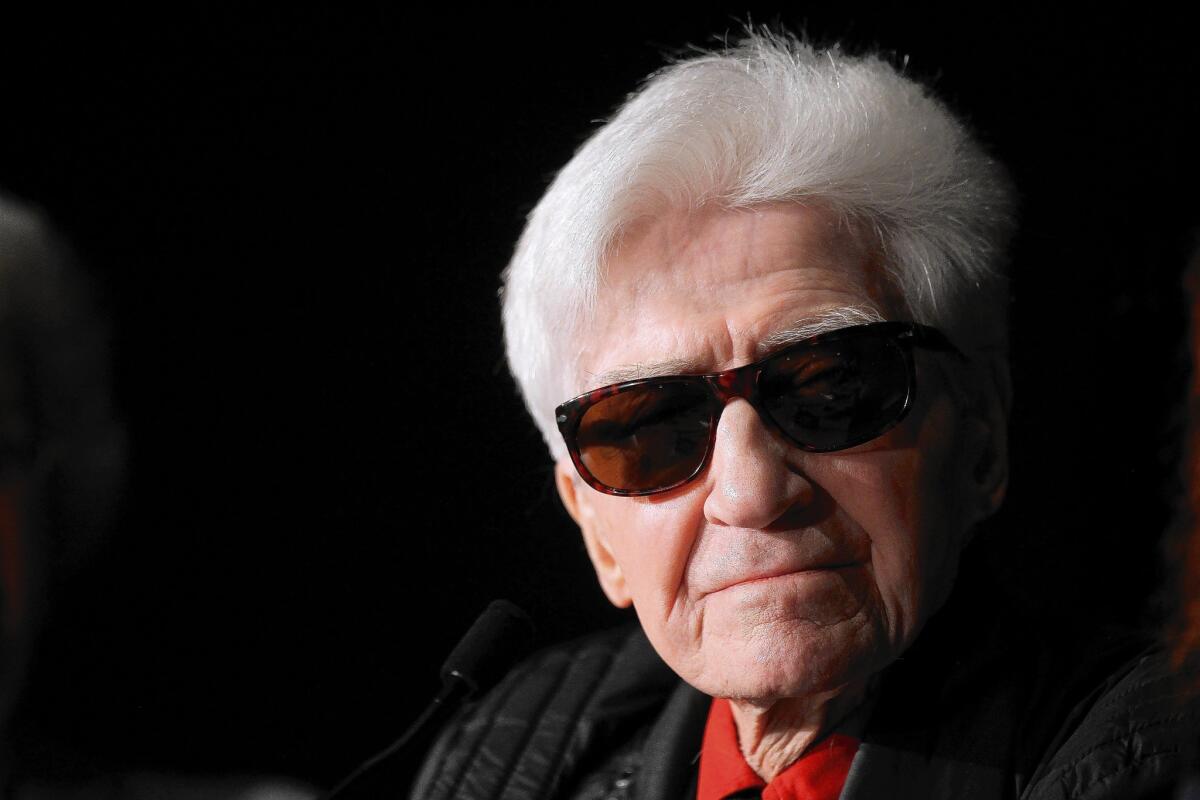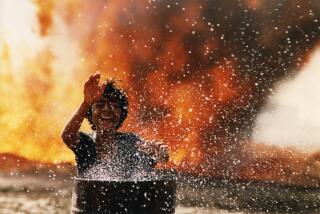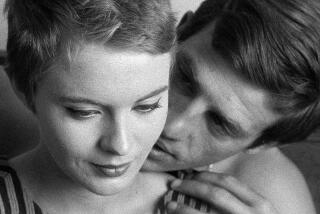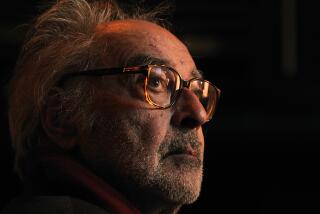Alain Resnais dies at 91; French New Wave filmmaker

- Share via
Alain Resnais, the French filmmaker whose intellectual experiments with time, memory and imagination yielded such celebrated films as “Last Year at Marienbad,” has died. He was 91.
Resnais was editing drafts of his next project even from his hospital bed, his longtime producer, Jean-Louis Livi, told the Associated Press.
Resnais, who died Saturday, was renowned for reinventing himself during each of his full-length films, which included the acclaimed “Hiroshima Mon Amour” in 1959 and most recently “Life of Riley,” which was honored at the Berlin Film Festival just weeks ago.
In France, he won two Césars, the French equivalent of the Oscars, and, in 2009, received a lifetime achievement award at the Cannes International Film Festival.
Praised by French President Francois Hollande as one of his nation’s greatest filmmakers, Resnais started his career with art documentaries before making the leap to feature films.
Though many of his films were cerebral, his later work had a more clearly playful side. In 2009, he told reporters at Cannes that the humor in his film “Wild Grass” was inspired by one of his favorite TV shows: Larry David’s “Curb Your Enthusiasm”.
His most influential work was “Last Year at Marienbad” (1961), which the New York Times described as “one of the most mysterious movies of the 1960s.” Set in a massive, baroque hotel with characters identified only by a single initial, it is an ambiguous love story that revolves around the possible relationships, past and present, of M, X and A.
New Yorker critic Pauline Kael called it an “aimless disaster,” but it has been lauded by fans such as filmmaker David Lynch and the former First Lady Jacqueline Kennedy, who screened the movie at the White House.
Born on June 3, 1922, in Vannes France, Resnais, the son of a pharmacist, suffered from asthma as a child and was schooled at home. When he was 12, his parents acknowledged his fascination with movies and gave him an 8-mm camera.
During World War II, he studied acting and film editing in Paris, serving with the French military in 1945 and 1946.
He made short documentaries about the works of Van Gogh, Gauguin and Picasso but gained wider attention in 1955 with “Night and Fog”, a haunting piece about the Nazi concentration camps.
His first feature film was “Hiroshima Mon Amour” (1959). The story of an ebbing affair between a Japanese architect and a French actress, it is set in post-WWII Hiroshima and is laced with each character’s painful memories of war.
Regarded as part of the famed French “New Wave” of filmmakers, Resnais never had a blockbuster and spoke of them with a kind of bemused detachment.
“I’m certainly interested in a film which might gather millions of people, such as ‘Jaws,’ although I haven’t seen ‘Jaws’ and no one I know has,” he told The Times in 1977. “I am making films for everybody who doesn’t want to stay home and watch television, and maybe that is a very few people.”
Known for his debonair manner and full head of white hair, Resnais was described by a Times reporter in 1980 as “tall and beautifully barbered, with pale, papery skin and clear blue eyes. A non-smoker and non-drinker, he is shy and withdrawn yet terribly anxious not to seem ascetic or remote.”
An artist who delved into pop culture as well as abstract thinking about non-linear storytelling, Resnais owned what is reputed to be the largest private comic-book collection in France.
His survivors include his wife, Sabine Azema, an actress who appeared in many of his films. They were married in 1998.
An earlier marriage, to Florence Malraux, daughter of the writer Andre Malraux, ended in divorce.
More to Read
Start your day right
Sign up for Essential California for the L.A. Times biggest news, features and recommendations in your inbox six days a week.
You may occasionally receive promotional content from the Los Angeles Times.






